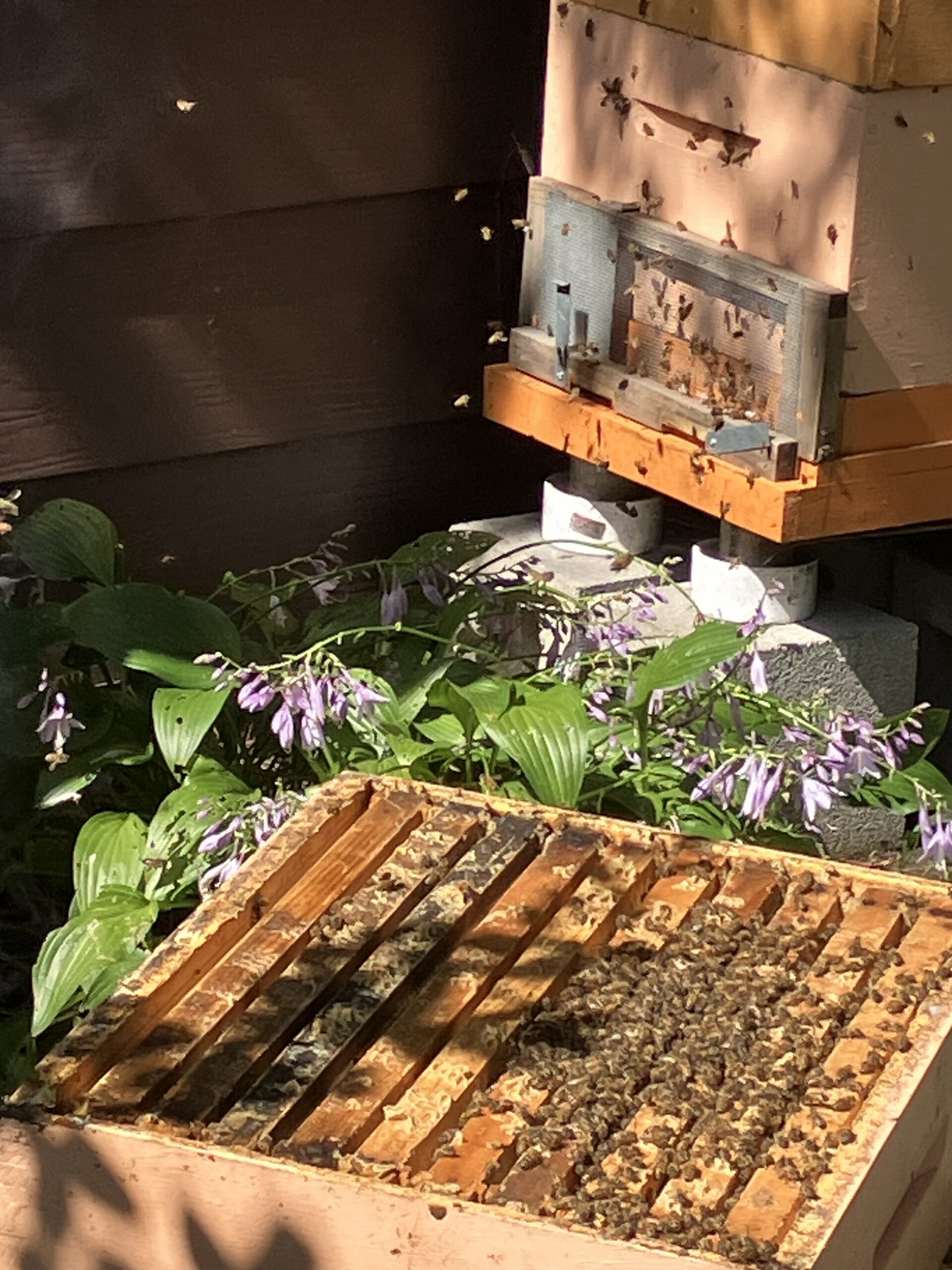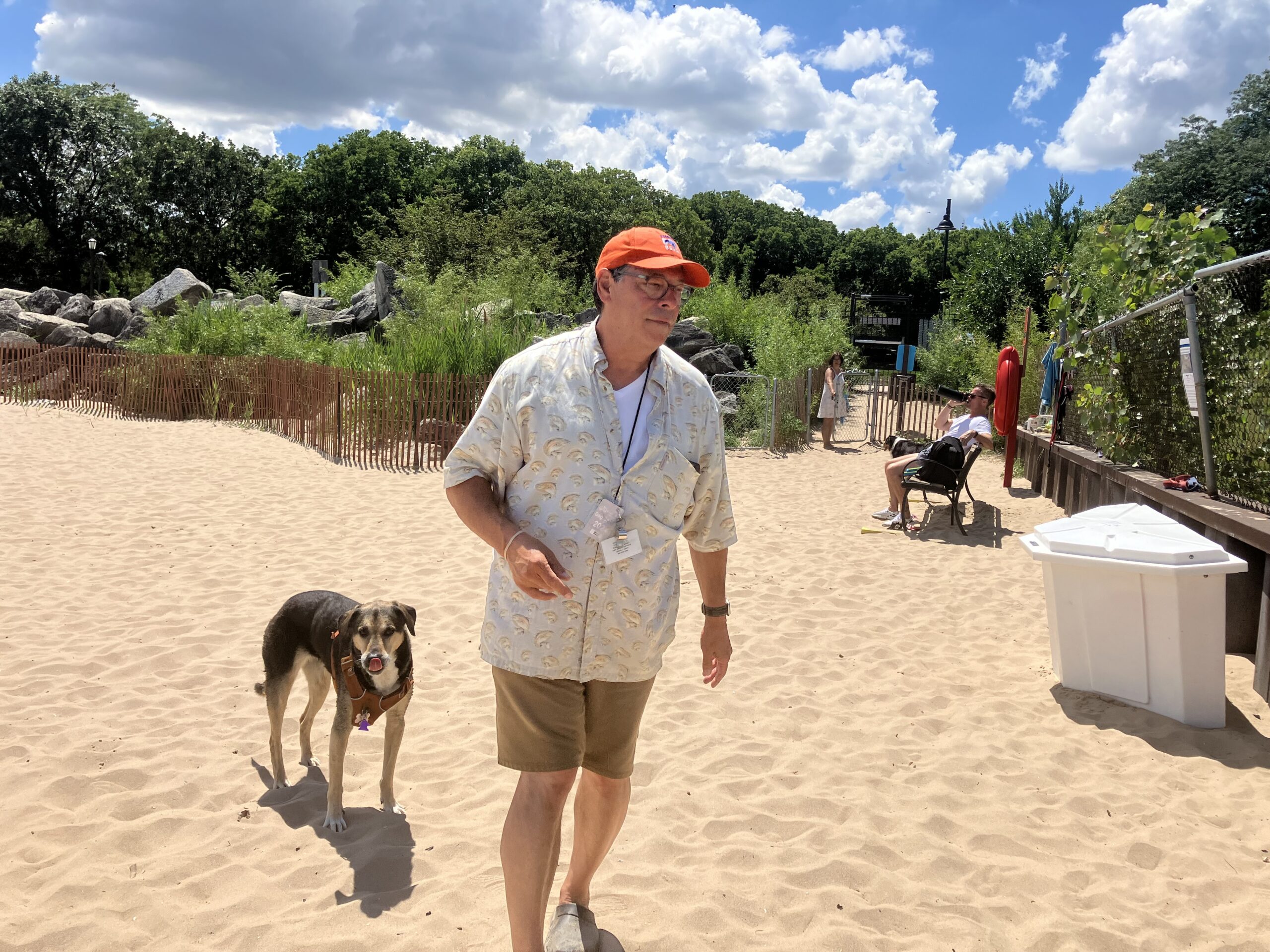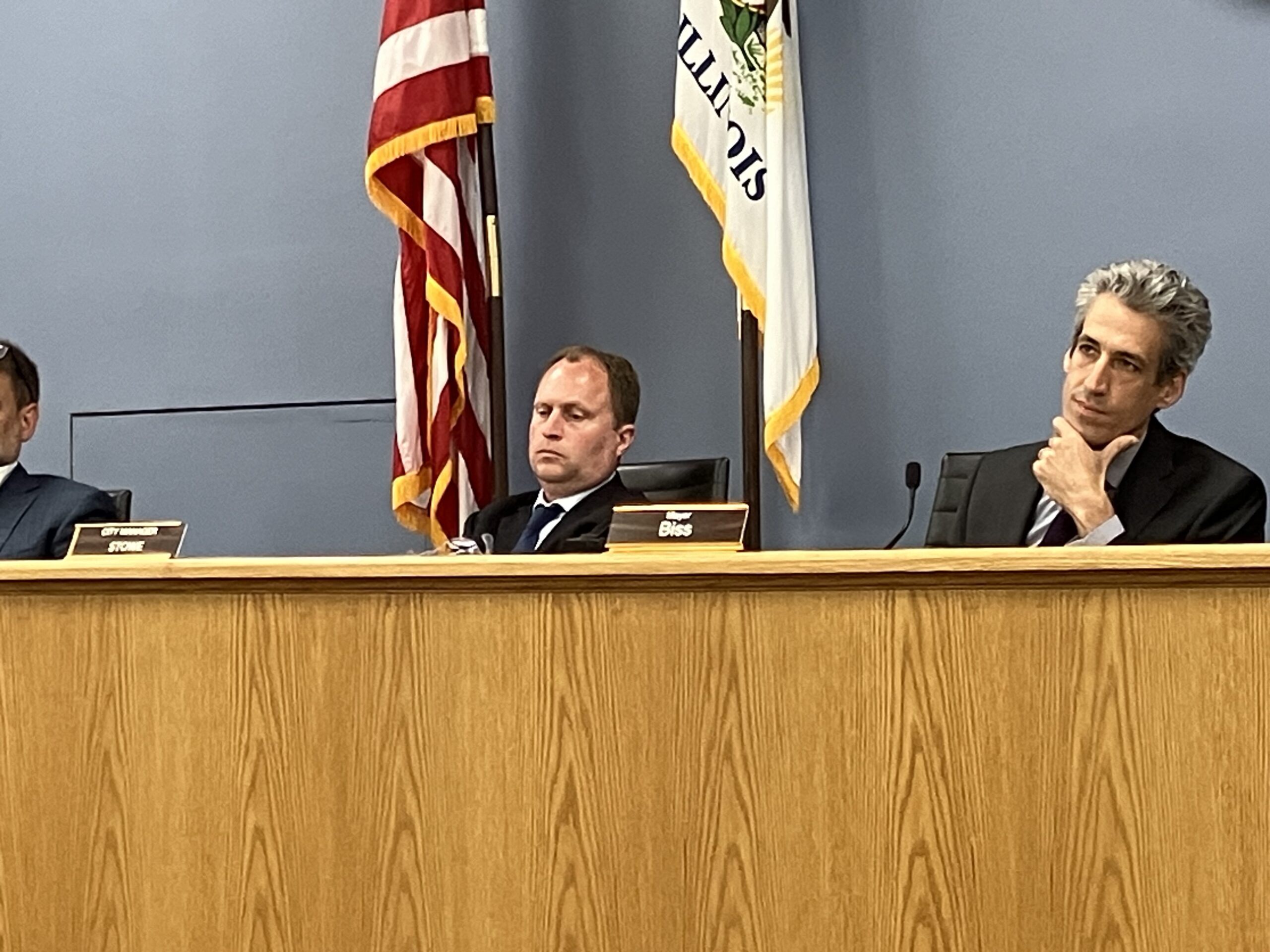Seventh Ward Council Member Eleanor Revelle, chairing the meeting, agreed that the recommendation coming from the report is “that we’re all focused on is moving the hives.”
Do what’s best for the bees, too: Nisi
Responding, Nisi said, “there’s not a lot of places in my yard they could go – where they’re at is the sunniest spot. They need a certain amount of sunshine in order to [thrive],” she told committee members.
She added that she still believes that yellow jackets might have been the cause of the stinging.
“I did keep bees for a full 10 months before anybody even knew I was having them,” she also told committee members.
“If we can,” she said, responding to Harris on moving the hives.
We’ve got to do what’s best for the bees, too,” she said, “and I’m not going to put them in a shady spot just so I can say it’s 3 feet away from where it was before.”
I think what we’re asking for is reasonable,” said Harris. “And we know it [the stinging] can happen again. But if you’ve done your part, that’s how we can do it. We’re never responsible for other things.”
Nisi expressed hope to committee members that she could speak to Buckles, who she said is a friend, and ask for more details, speculating that the recommendation to move was “some element of compromise because everything was going in my way.”
“I will work with Brittany, I mean we’ve been friends for years, beekeepers, we all know each other,” she said. “I am not a stick-in-the-mud but I also don’t want to put a beehive in the middle of my backyard if it can be avoided.”
Revelle suggested that staff follow up in April to see what adjustments have been made, reporting back to the committee at that time.
‘Traumatized’ by bees: Paleologos
Paleologos, director of neurology for Advocate Health Care’s Midwest region, told committee members at their Aug. 21 meeting, “that for over a year, neighbors have been traumatized almost daily by bees from Ms. Nisi’s hives … while in my backyard, particularly when in or near the pool.”
“Multiple people have been stung,” she said. Her sister was stung in the eye while sitting quietly in their hot tub, she said.
“The mission of the Health and Human Services Department to protect, preserve and promote wellness for people, not for bees,” she said at the committee’s Aug. 21 meeting. “Having these hives next door is unsafe and presents a danger.”
During public comment earlier at the Tuesday, Nov. 28 meeting, she again raised attention to a video Nisi had made, where “you see her talking how agitated her bees are and how aggressive they are, and how there are swarm cells she noted before,” she told committee members.
She maintained that although the city’s memorandum had stated that Nisi requeened her hive promptly after receiving complaints, that wasn’t the case.
Rather, she said “there were many, many weeks with multiple complaints” before the requeening took place.
“I feel that keeping bees should not necessarily be a right if they’re inflicting harm on other people nearby,” she said to committee members.
“She can have her bees off-site,” she said. “There’s a community garden like literally three or four blocks away,” she said, “where the bees would then be able to pollinate the gardens that are there.”
She suggested Nisi could also decrease the number of hives at her site, so that she has “only one hive or maybe two instead of three large hives that are getting bigger with overwintering.”
Ann Pantoga, Paleologos’ attorney, who followed her to the lectern, told committee members that Nisi kept bees on her property for a year without a license “during which time we believe, we don’t know for certain, that she probably did not have an adequate water source because those bees were going to neighbors for pools for their water supply.”
She said it wasn’t just Paleologos who had an issue about the hives, noting that it was another neighbor who made the initial 311 report to the city about the hives.
“So I think the question, too, is who has the burden? she said to committee members. “Does the objector have the burden,” she said, asking committee members to deny the license.
An attempt to ‘litigate nature’: Nisi
Nisi told committee members she wasn’t going to address everything that had been raised, “because frankly it was character assassination.”
She said that 10 days after their first hearing on the issue Aug. 21, her husband discovered a crack in a staircase on the east side of her neighbor’s house about 3 feet from her backyard and pool, discovering a yellow jacket nest.
“Yellow jackets look almost like honeybees and they are aggressive and carnivorous and start hatching in late June,” she told committee members. “Ms. Paleologos’ guest was stung on July 25,” she said.
She said she immediately sent videos backing up their discovery to the city, “assuming this would end this ordeal.”
“It is absurd that Nina surmises that she can somehow litigate nature so that she can sit by her pool and not have to interact with bugs or by bullying the Department of Health into going expert shopping for someone, anyone, to side with her,” she said.
She said the video that Paleologos referred to was taken completely out of context and was filmed prior to the issue. (She said in a prior interview that the video was one she created on Instagram and meant to be funny, demonstrating an element of beekeeping.)
Even if the stinging was from her hive, she told committee members, “I did exactly what I was supposed to do, requeen the hive and they have been calm and normal ever since.”
“This is the first license challenge,” she ended. “It is concerning that a single incident prompted intrusive taxpayer-funded review of a well-established regulation, forcing this body to go to Herculean efforts to satisfy Ms. Paleologos.”
Paleologos, asked after the meeting about the bullying charge, responded that “no one has bullied anyone.”
“She is angry and lashing out,” she maintained, “because they are telling her to move the hives further away from my property line as per the recommendation made by the entomologist and she stated very loudly and clearly in the hearing she doesn’t want to.”
Also after the meeting, Nisi said the characterization of her as a bad beekeeper hurt her.
“I’ve been doing this for seven years,” she said. “Like this is just my hobby. I am deeply in the community of beekeepers. I talk to them all the time, I go to meetings. And I never had a situation where I was being aggressive and, yeah, it took me two days to try to figure out what I was going to do.”




